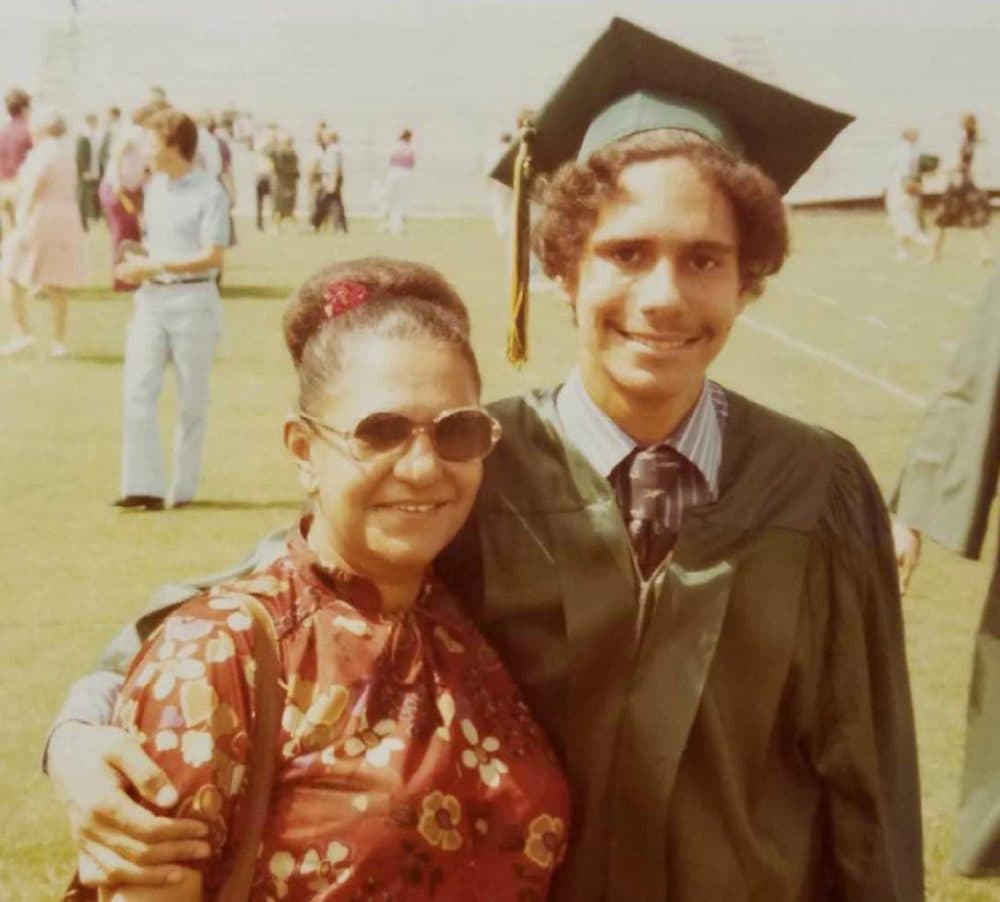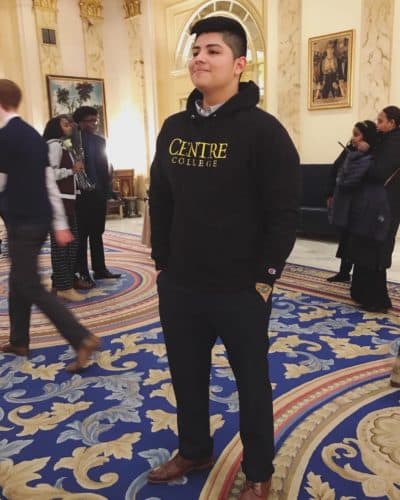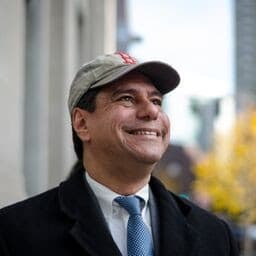Advertisement
Commentary
Let's Give Boston's Graduates A Real Graduation. They've Earned It, And We All Need It

“You go, Sammy! Woohoo!"
At my high school graduation 30 or so years ago, my family was one of those of families.
Ignoring instructions to “hold your applause until the end,” they erupted in explosive exultation when the school registrar read my name, their ruckus reverberating off the gymnasium walls. My mother may have brought her tambourine.
Utterly annoying. Unless you know the triumph of seeing the first in your family earn a diploma and go on to college.
Of all the measures Boston Public Schools Superintendent Brenda Cassellius and Mayor Marty Walsh announced recently, perhaps none means more to BPS seniors and their families than the promise of a citywide graduation — albeit a “virtual graduation” -- celebrating the Class of 2020. BPS grasps the monstrous void it would leave if graduates, and especially first-generation graduates, miss out on a graduation ceremony.
These young people want and deserve the real thing, in some post-COVID-19 shape or form — and not a Zoom facsimile. After months of coronavirus quarantine, and absorbing the heartache of the killings of George Floyd and others, now more than ever, the BPS class of 2020 needs this most precious of rituals.
We need to celebrate a special class of young people who surmounted long odds ... completing their final year without a classroom, without a prom, and without fanfare.
For a first-generation family, the graduation ceremony takes on an almost indescribably mystical — even, spiritual — significance. American culture is largely devoid of community rites of passage. Most are reserved for our religious institutions (a bat or bar mitzvah, a confirmation, a baptism, etc.). Reflecting our Puritan roots, our rites of passage must be earned.
It's also a culture that can be lethal. Ensuring more first-generation BPS Black and brown students reach for their diploma is upstream of the systemic racism the world is now decrying. The tragedies we are mourning are downstream; as are Black and brown students without a degree, their subsequent lack of access to the levers of change and the systemic racism that endures from one generation to the next.
While graduation rates have risen across all ethnicities over the last decade at BPS, a disturbing 20% of Boston’s high school students are still considered "off-track" to graduate from high school on time. Ninety percent of those “off-track” students are either Black or Latino.
Advertisement
Is it any wonder that systemic racism and achievement gaps have each persisted as long as anyone can remember? They go hand in hand. There will be no change downstream, until we successfully close the gaps upstream.
The life-long consequences of not graduating — of not “walking,” of not earning a diploma — are dire. We know that college graduates earn $1 million more than high school graduates over their lifetimes. That earnings gap is only wider for those who fail to achieve a high school diploma.
And we all need them to graduate -- not just from high school, but from college, in droves. As of 2016, more than half of students graduating from high school and going on to college in the U.S. are the first in their families to do so. Each first-generation young person who earns a diploma is a triumph. It transforms their lives, and the lives of the next generation.
This includes students like Samuel Landaverde, who is graduating from East Boston High School this spring. Samuel is part of the Boston Higher Education Resource Center’s Passport to College Program that connects first-generation high school students in BPS classrooms with coaches who are themselves first-generation young professionals.

Samuel came to the U.S. with his parents when he was 14-years-old. A native of El Salvador, his parents worked subsistence jobs and never made it past the ninth grade. When Samuel arrived in Boston, trying to escape poverty and the gangs who were forcibly recruiting kids like him, he spoke very little English. But he picked it up quickly: Samuel ended up in AP classes, where he got straight As and won a full-tuition Posse Scholarship to Centre College in Kentucky.
He is proud to have earned his diploma, but he needs a graduation ceremony. He writes:
After you worked so hard . . . taking online classes every day, not seeing your friends … I always imagined walking across the stage with my friends, [saying] it was worth it; everything we did, everything we worked for — it was worth it.
The city of Boston, weary and heartbroken, needs it too. We need to celebrate a special class of young people who surmounted long odds — made longer still by completing their final year without a classroom, without a prom and without fanfare.
When it is clear the public health threat has subsided, it would be marvelous for Boston to plan a city-wide graduation extravaganza. What if we are ready by next November? We could celebrate the “COVID-19 class” with an event at Fenway Park or the T.D. BankNorth Garden. Invite the Boston School Committee, City Council members, Mayor Walsh — and why not, Tom Brady and Big Papi. And of course Dr. Cassellius — it will, after all, be her first Boston graduation too.
And even if that grand plan isn’t possible, we ought to find some way for Samuel, and his family and friends, to mark this moment. Perhaps in gyms and auditoriums and parks across the city Boston can host modest, social-distance celebrations combining a “graduation” with a “community Thanksgiving.”
These community rites of passage have power. They endure. They shape us.
My mom has since passed away, and bequeathed her tambourine to my sister. But she never forgot that May morning when — with her whoops and hollers filling our gymnasium — she saw my life change, and our family’s story and legacy change, forever. I’ve never forgotten it. Neither will Samuel Landaverde and his family. And neither will Boston.
Regardless of what shape it takes, let’s celebrate our kids. Every cap and gown that walks across the stage, diploma in hand, into tomorrow, is our shared hope and future.
